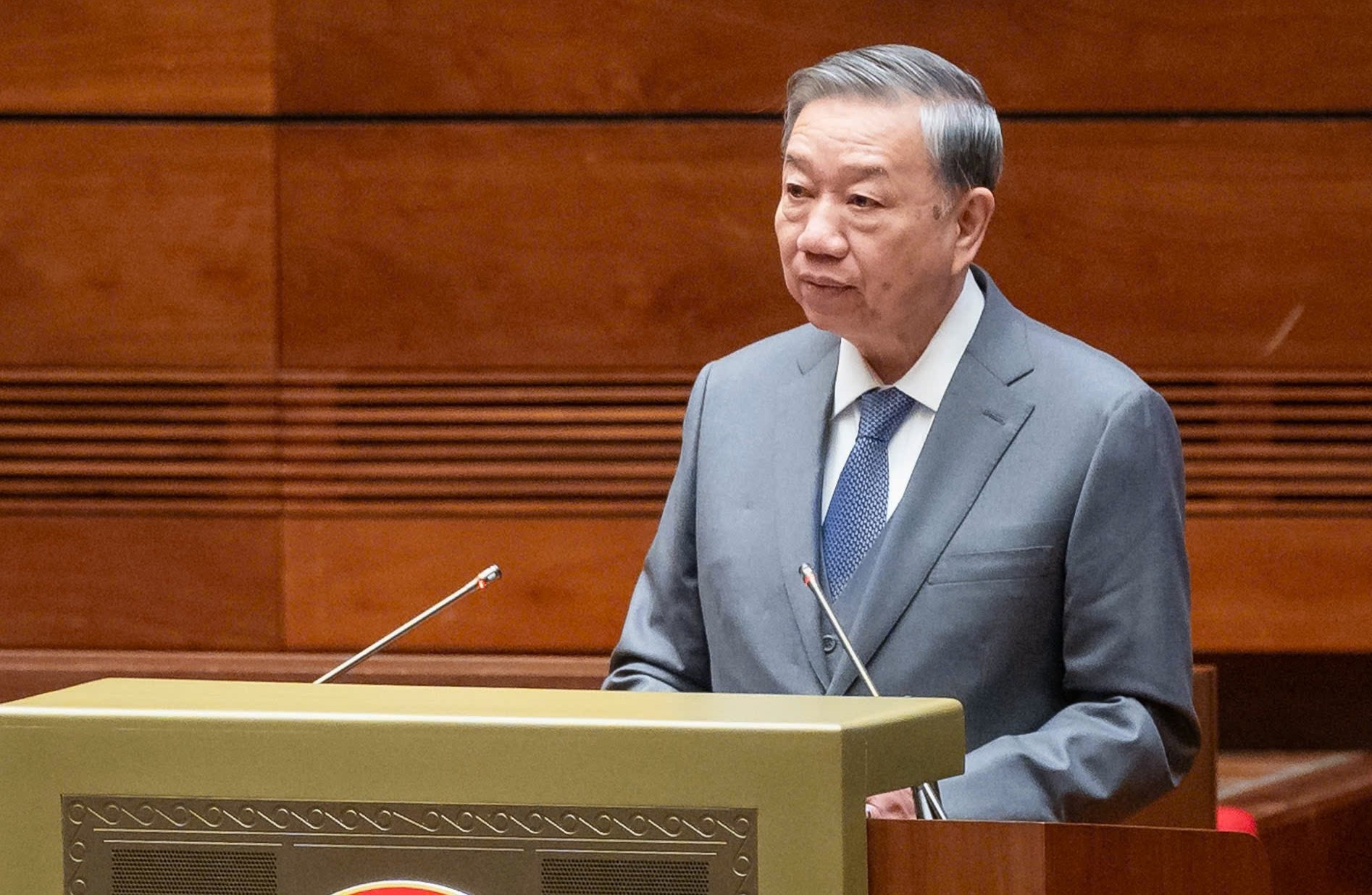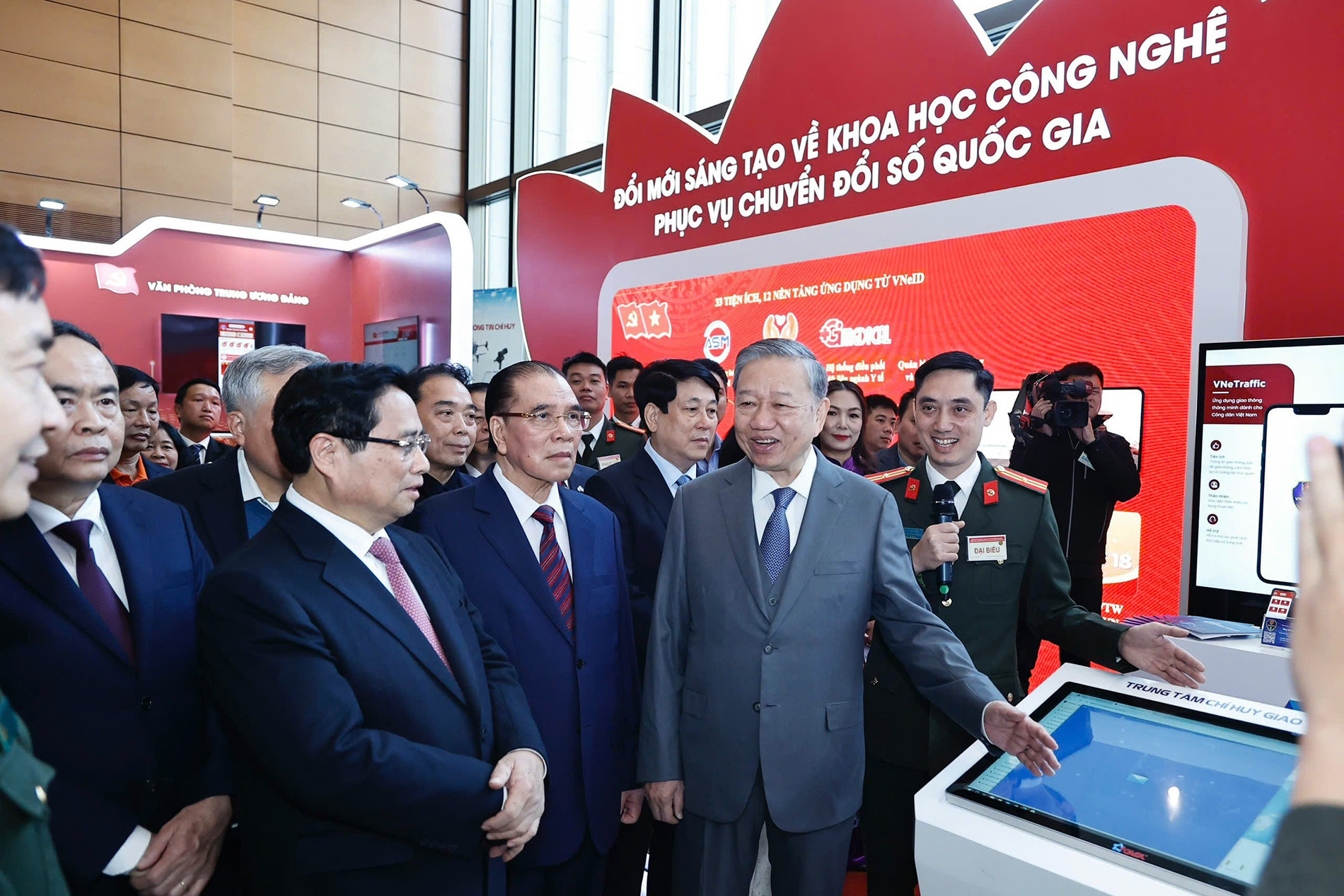Speaking on January 13 at the national conference on breakthroughs in science, technology, innovation, and digital transformation, the General Secretary reflected on Vietnam's scientific journey.

He recalled the historic May 18, 1963, event at Ba Dinh Hall, where President Ho Chi Minh emphasized the importance of science and technology in national development, stating, “Science must serve production and the people.”
This landmark event laid the groundwork for Vietnam's subsequent efforts to industrialize and modernize through science and technology. Six decades later, this conference symbolizes a renewed commitment to advancing these fields for the country's prosperity.
Reshaping mindsets and fostering breakthroughs
The General Secretary identified science, technology, innovation, and digital transformation as pivotal drivers for overcoming the middle-income trap and achieving national aspirations for strength and prosperity. However, he stressed that these are tools, not ends in themselves.
Breakthroughs, he noted, are the true game-changers. They require new, revolutionary approaches to overcome existing limitations, creating significant and lasting impacts.
Resolution 57 of the Politburo, referred to as the “Resolution for Scientific Thought Liberation,” has garnered widespread support, marking a transformative step in advancing the nation’s scientific potential.
The resolution emphasizes bold objectives and innovative methods to unlock creativity, remove barriers, and empower the nation to make significant strides in science, technology, and digital transformation.
Key priorities for progress

The General Secretary outlined several urgent tasks:
Institutional and policy reform: By 2025, legal and regulatory frameworks must be updated to address obstacles and unleash innovation.
Mechanisms should empower decision-makers to act decisively and responsibly while ensuring effective oversight.
Eliminating counterproductive practices: He called for ending bureaucratic hurdles, term-based thinking, and mediocrity that hinder progress.
Streamlining scientific organizations: By the first quarter of 2025, the restructuring of scientific organizations must be completed, focusing on strengthening key research institutions.
Building high-quality human resources: A specific plan is needed to attract top talent, including Vietnamese professionals abroad and international experts, through competitive policies on citizenship, income, housing, and work conditions.
Infrastructure development: Investments in digital and energy infrastructure, particularly clean energy, are crucial to meet long-term development needs.
Promoting digital transformation: Efforts should prioritize building a national data center and advancing Resolution 06, ensuring data sovereignty and security.
Fostering collaboration and investment: Vietnam must harness global knowledge, leverage international partnerships, and attract leading technology corporations.
Overcoming challenges for national progress
The General Secretary emphasized the importance of aligning national investments with strategic priorities, allocating at least 3% of the state budget and gradually increasing science and technology spending to 2% of GDP over the next five years. He advocated for simplifying administrative processes to optimize resources and encourage creativity.
Acknowledging the challenges faced in attracting global technology firms, he stressed the need for reforms to create a more business-friendly environment, enabling quicker project approvals and implementation.
In conclusion, the General Secretary urged the nation to seize this moment, mobilizing collective creativity and determination to transform Resolution 57 into action.
By fostering unity, innovation, and commitment, Vietnam can build a peaceful, unified, independent, democratic, and prosperous future, as envisioned by President Ho Chi Minh.
Thu Hang